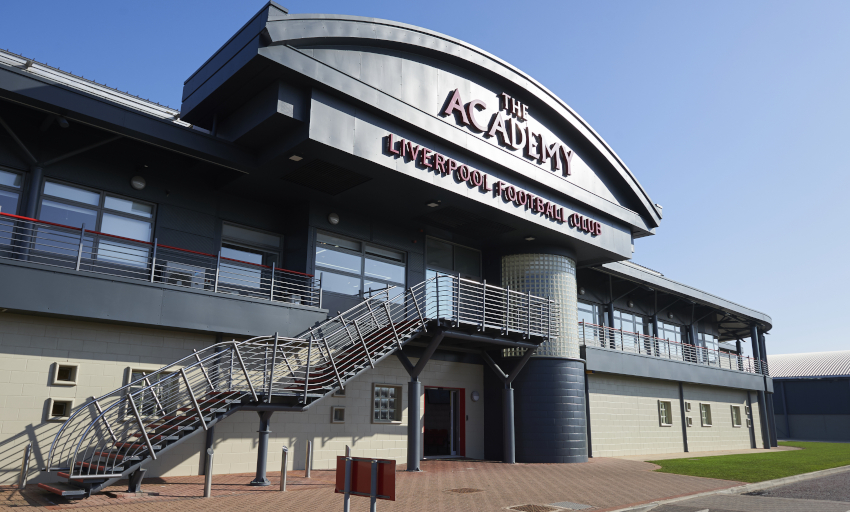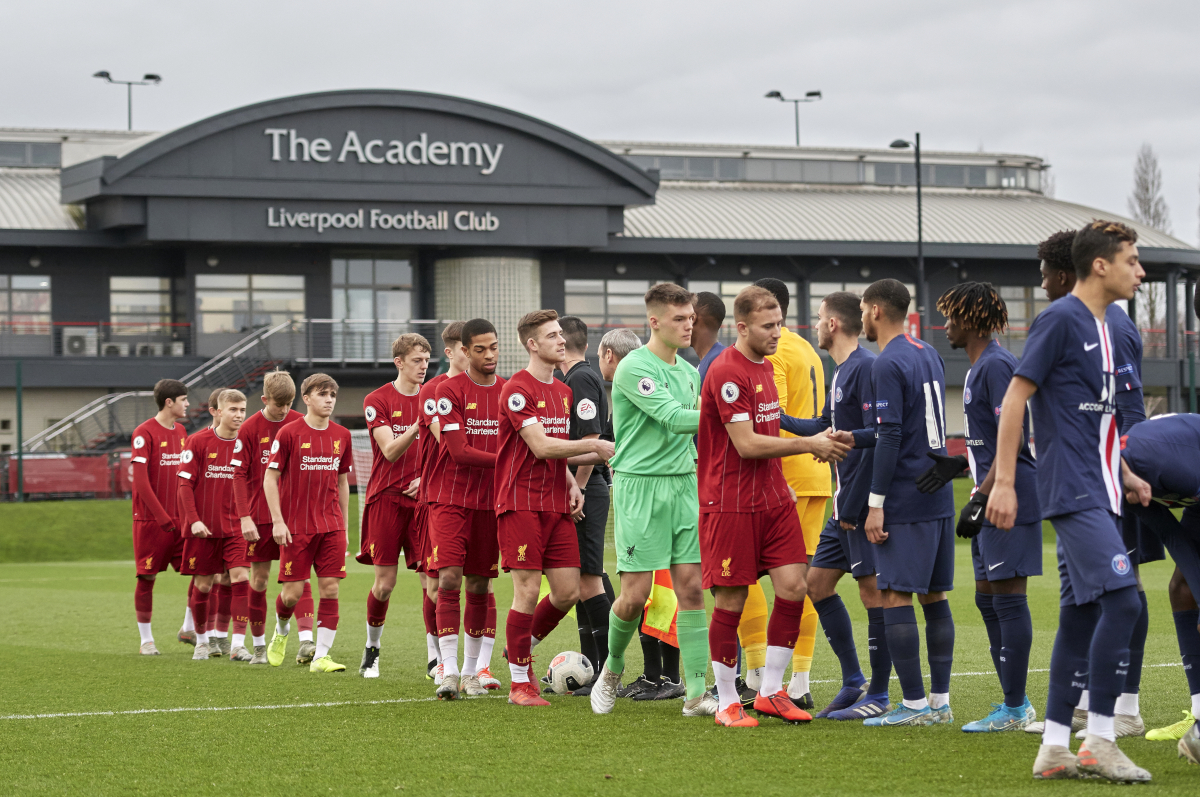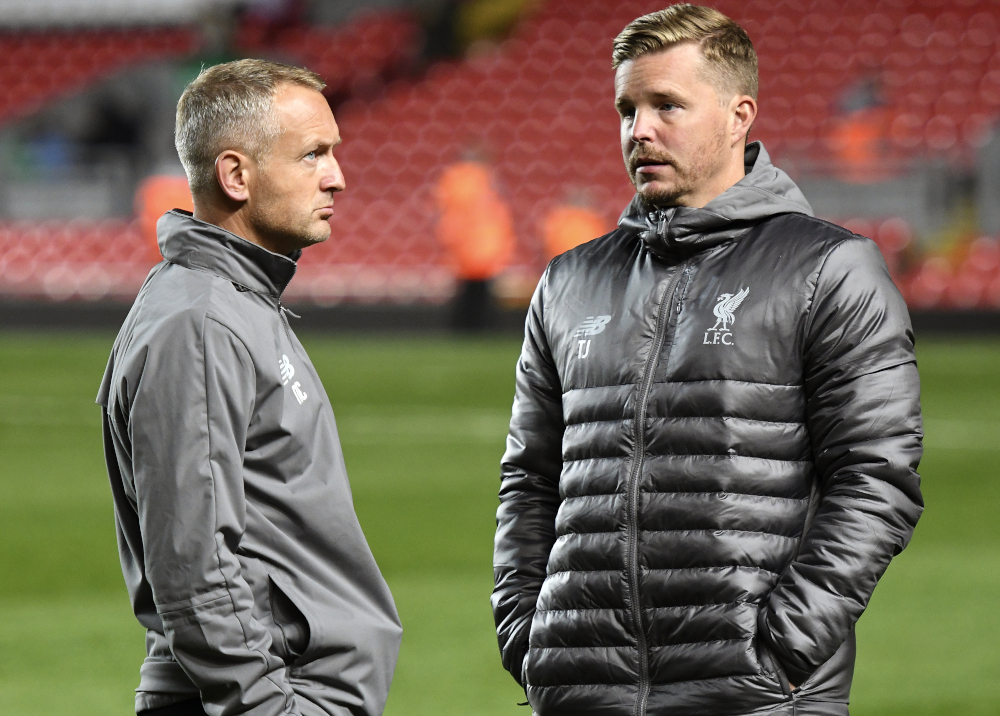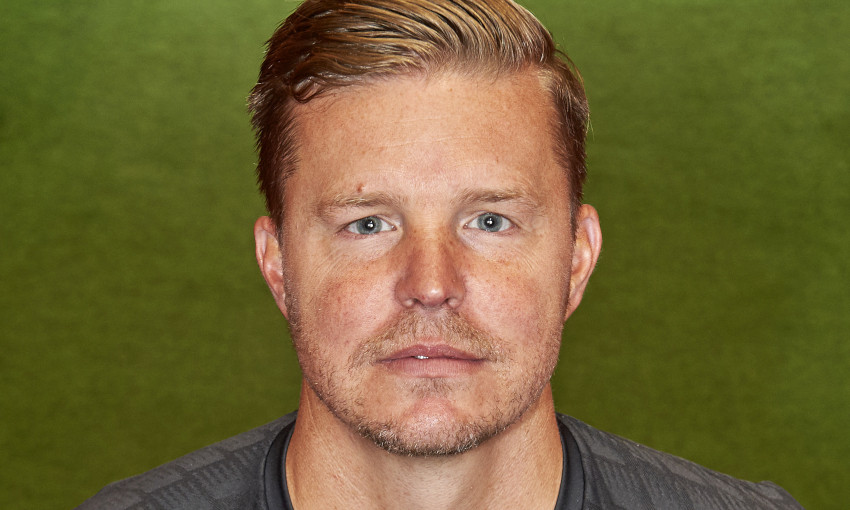Behind the Badge: The analytics pioneer helping to drive Academy development
Football analytics are now so mainstream that it's not uncommon to hear terms such as 'low block' and 'high press' discussed in the stands or the pub.
But as recently as the turn of the century, the art was still practised only by a small number of pioneers.
People like Tim Jenkins. Now head of analysis at the Liverpool FC Academy and individual coach for the Reds’ U23s, back in 2001 he was a university graduate in his early 20s, dropped in the deep end as the analyst in residence for a Derby County side trying to avoid relegation from the Premier League.
“Monday Night Football has got a lot to answer for!” laughs the 40-year-old, when asked about his once-niche occupation infiltrating the zeitgeist.
Jenkins’ journey within the game began at a company that would eventually become one of the biggest global players in sports analysis but was merely a fledgling start-up in the early 2000s.
It may have been based at an old warehouse in Leeds, but ProZone had something of a Silicon Valley vibe, with an enthusiastic young workforce of like-minded individuals, almost all of whom have gone on to become respected thinkers in football and several now employed at Melwood and/or the Kirkby Academy.

“Obviously ProZone is now quite a familiar name within analysis, but when I went there it was a small cohort of people, seven or eight staff, and together we helped to put together the analysis system that became the frontrunner in that field,” Jenkins recalls.
“There wasn’t really anything before that, so it was sort of the inception of analysis as a standalone discipline within the support structures of football clubs. There were a few of us there in those days: Dave Fallows [Liverpool’s director of scouting and recruitment], Julian Ward [loan pathways and football partnerships manager at Melwood] - and Michael Edwards [Reds sporting director] was around it as well. Together with those guys we developed the product, and then our role was to go out there and take it to the marketplace.”
Put like that, it sounds straightforward. But walking straight into a Premier League club armed only with some moving dots on a laptop must have been daunting in an era when analytics were still regarded with an air of suspicion? Not at Derby, where Tim’s input was warmly welcomed by John Gregory, by George Burley and especially by Jim Smith, who sadly passed away in early December.
“The reception was pretty good, from Jim in particular. Maybe the stereotype wouldn’t have suggested it, but he was actually quite open to trying new concepts and was one of the first managers to embrace the ProZone technology,” he explains.
“It was really trial and error in those days; it was great to find out how much a player ran in a game and how many passes he played, but when it came to, ‘What is it actually telling you about performance?’, it was really quite basic.
“Probably the hardest part of the job was trying to add context to the numbers, you were trying to educate yourself as well as the people that were operating it. It was a fairly turbulent two-year period, which involved Premier League, being relegated, playing in the Championship, but that’s where it started for me, and when I was at Derby I could see how analysis – and particularly working with video – could impact upon player development.
“I took some of those ideas and used them to work more hands-on with players at Hartpury College in Gloucester, where I became the academy manager and got my coaching badges and UEFA ‘A’ licence. It was a reasonably successful time in terms of how the team did – national champions in three of the seven years – but the main successes were around individual players.
“One boy, Abdul Majeed Waris, went from the college programme to playing in a World Cup for Ghana. He played against us at Anfield for Porto in the 2017-18 Champions League – I knew that boy when he was 16 and playing on council pitches here, there and everywhere!”

Jenkins would go on to make the move to Liverpool in late 2012.
So, how has Tim’s role evolved over the past seven years, and what does his average working week look like?
“Initially I came in just as the head of analysis and the analyst for the U23 team, but fairly quickly that developed into getting some coaching experience on the grass with those age groups,” he adds.
“That role has continued to develop since then and I’m now the individual coach of the U23 team, which basically means I’m out on the grass supporting the head coach, Neil Critchley. Within that we may split the group into two smaller groups to work on specifics, which is where I come in, in terms of taking exercises and sessions – small group work designed around the needs of individuals.
“On a matchday I will normally go and watch the game from somewhere higher than the dugout, at the back of the stand or a gantry maybe, and I’ll try to get a tactical overview of the game then share it with Neil during the game via radio. Or I can just talk to him directly if the gantry is near the dugout and give him a slightly different perspective on what he’s seeing.
“The main remit of the job, though, is development; we have individual development plans for every player and it’s my job – along with Neil and the other coaches – to create a plan for each one and base that around the video work and some statistics just to try to highlight particular areas. Then we can present that back to them and set about working on it on the training field and monitoring them over a period of time in the games.
“What you’re looking for is hopefully an upturn in those areas over time, and the things we could highlight are not necessarily just technical issues; it might be a certain type of finish, or maybe a defender with his heading, or a certain player’s reaction on transitions, how they counter-press, maybe their mentality in terms of how they deal with a setback or a difficult moment within a game.
“For example, when Luis Longstaff stepped inside against Wolves recently and whipped a cross in off his left foot that Rhian Brewster headed in from close range, he’s practised that action hundreds of times out on the field with myself and Neil.”

Liverpool’s U23s have recovered well from a difficult start to the campaign and are continuing to battle on three fronts – the Premier League Cup, the Premier League International Cup and Premier League 2, where they have lost just twice since August.
But, with their keen focus on individual development, Critchley and Jenkins have derived much more satisfaction from the role U23 regulars such as Neco Williams, Curtis Jones and Harvey Elliott played in the first team’s Carabao Cup campaign – which came to an end when the youngest starting XI in Liverpool’s history was valiantly beaten at Aston Villa just before Christmas – and the FA Cup victory over Everton sealed by Jones’ wonder goal earlier this month.
“It’s been great to see, and the most pleasing thing is it just shows the hard work the players themselves have put in,” Jenkins offers. “We’re here to support the players but it’s not really down to us, it’s down to those individuals.
“I think Neco is a real prime example of that, the way he has been able to manage a number of disappointments in his development pathway. He’s not always been on the scene at Melwood but he’s kept working hard on his game and his mentality has stayed strong. We’ve just supported him on that, but he works hard every day and he deserves the success he has had.
“Curtis has been outstanding for us this season in the U23s league, he’s a real talent. The way he has applied himself this season in particular, he had some difficult moments for the U23s last year, but this year his mentality has been excellent as captain of the team, and again, from his point of view it’s pleasing to see that’s been recognised at Melwood.
“As for Harvey, he’s come in and blown everyone away, really, with his mentality and how he works, the effort he gives every day in training – whether that’s with the U23s or at Melwood – has been fantastic. He’s a great kid and has a real love for the game, he just loves playing football.
“The players are all getting different experiences during the week; some will be at Melwood, with the benefit of training with the first team, and our players will work in a smaller group here doing specific work. We bring those groups together on a matchday, really, we don’t normally get more prep time than the day before, but for us that’s not a problem.
“So, if, for example, Harvey doesn’t train with the group but ends up playing in the game, because he’s just spent three days at Melwood working with the first team, that’s perfect for what he needs.”
The connection between the Academy and the first team will be bolstered significantly when the two operations are brought together at one new training complex in Kirkby later this year, but the existing relationship is already a strong one thanks to the influence of elite development coach Vitor Matos, whom Jenkins has been thoroughly impressed with since the Portuguese first arrived last October.
He says: “Vitor’s impact has been really positive in helping to coordinate the work between the two sites. When we’re talking about individual players, it’s great to know that when they’re at Melwood there’s still somebody keeping an eye on them and continuing the work that goes on at the Academy.
“So, for example, if Sepp [van den Berg] takes part in the training sessions with the team then Vitor can spend 20 minutes with him afterwards working on some of his defensive techniques and his heading.
“On the flip side, he comes here to watch our training sessions, and maybe he can help us recreate some of the concepts used at Melwood. He takes a real interest in the cohort of players that work between the two sites, while also looking at who the next group is to come up, because players may go on loan at some point and when they do the next group should be ready to take their place in the Melwood environment.”
Jenkins has three full-time staff working underneath him at Kirkby, covering every age group from eight up to 18.
It’s certainly a far cry from those early days at Pride Park, or indeed that warehouse in Leeds, but the Oxford native believes that, no matter how mainstream it becomes, football analysis fundamentally remains the same as it ever was.
“You’ll always find that people develop new terminology which has come with the influx of foreign managers over a period of time,” he concludes. “But in general, the game hasn’t really changed that much. Analysis will always come back to understanding the core principles in the game.”
Liverpool U23s’ latest Premier League Cup fixture is an away tie with Wigan Athletic at 7pm GMT on Friday.
The match will be broadcast live on LFCTV and LFCTV GO, with LFCTV free-to-air on Sky and Virgin this weekend for fans in the UK and Republic of Ireland.



